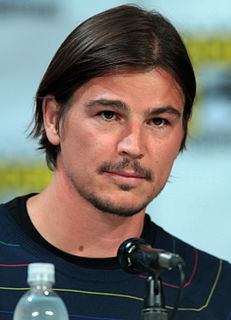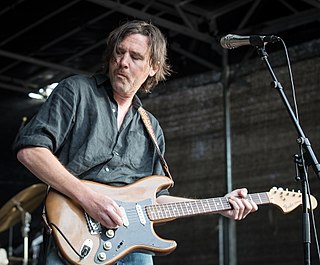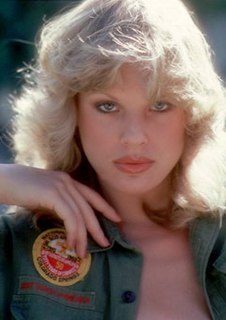A Quote by Nick Petrie
I don't outline or plan ahead when I write a novel. The more I know about what's going to happen, the less interesting it is to me; and if it's less interesting for me, it will be that way for the reader.
Related Quotes
I'm one of the narrative-push people. I don't outline, I don't plan ahead. So I'm my first reader, telling myself the story as I'm going along. Since I haven't designed it ahead of time, each day I have to be sure that the footing is solid before I make the next step. I think you could be more intricate if you work it out ahead of time.
I just think of interesting roles to play. I guess that I have matured, I guess growing up and becoming a man, your taste in characters changes and I think I have become more interested in active characters as I have become less contemplative in my personal life. Things have become a little bit more interesting in the doing these days and less interesting in the thinking about the doing.
I don't write because I think I have anything particularly interesting to say. I write because I love writing more than any other work I've done. I do think about entertaining the reader to the extent that I try always to write a book that I myself would want to read, but I don't think it's up for me to decide if what I've written is interesting to others. That is entirely up to others.
If you want to write about a person who isn't nice, people say, "This is a bad book. It's about somebody I couldn't stand." But that's not the point. You don't have to like a character to like a book. Most of the time, people would misjudge and say, "I didn't like the book." No, you didn't like the character. That doesn't make it any less interesting of a book. In fact, to me, it makes it more interesting.
If you had told me twenty years ago that I would write a novel set in Russia, much less two, I simply wouldn't have believed you. I had no familiarity with Russia or its history, but part of what drives me as a reader, and more and more as a writer, is curiosity, the desire to explore unfamiliar terrain and inhabit alternate lives.
It's very bad to write a novel by act of will. I can do a book of nonfiction work that way - just sign the contract and do the book because, provided the topic has some meaning for me, I know I can do it. But a novel is different. A novel is more like falling in love. You don't say, 'I'm going to fall in love next Tuesday, I'm going to begin my novel.' The novel has to come to you. It has to feel just like love.
The minute you finish a piece of writing it doesn't belong to you, you don't write it any more, it belongs to you, the reader, the listener, the audience. So the less you know about whether or not this is me talking about my life or this is me talking about your life, I think the better. Then it can belong to you and it can live outside of the moment in which it was conceived.
The age of the book is not over. No way... But maybe the age of some books is over. People say to me sometimes 'Steve, are you ever going to write a straight novel, a serious novel' and by that they mean a novel about college professors who are having impotence problems or something like that. And I have to say those things just don't interest me. Why? I don't know. But it took me about twenty years to get over that question, and not be kind of ashamed about what I do, of the books I write.






































